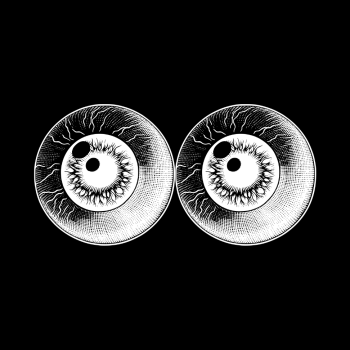
The most important judgement any of us will ever make is about the intentions of God – his very nature and the purposes of his heart. This judgement in and of itself shapes the rest of our walk of faith. If we judge God to be angry and vengeful, we will not feel safe in his presence and will steer clear of spiritual intimacy; if we judge him to be merciful and gracious, we can discover the most incredible, tangible connection with the Lord, and walk closely with him each and every day.
For this reason, our doctrine couldn’t be more important. Theology matters, and our judgement of God’s intentions towards us becomes a measure of what we are able to receive. There is nothing more important that our understanding of God.
Judging God to be Faithful
Hebrews 11, 11-12:
‘By faith Sarah herself also received strength to conceive seed, and she bore a child when she was past the age, because she judged Him faithful who had promised. Therefore from one man, and him as good as dead, were born as many as the stars of the sky in multitude—innumerable as the sand which is by the seashore.’
Sara judged God faithful, and in doing so received the blessings that radically transformed her life, her future, and that of the entire human race. If we judge him faithful, our measure expands to contain the uncontainable.
How then do we move ourselves into that place of faith? There is only one mechanism for transformation recorded in the Bible, and that is the renewing of the mind. Romans 12: 2,
And do not be conformed to this world, but be transformed by the renewing of your mind, that you may prove what is that good and acceptable and perfect will of God.
The process of renewing our minds necessarily involves two distinct energies – moving away from the old, and moving towards the new. One is a rejection, the other an acceptance. If we struggle to trust God, it is likely that our image of him is unwholesome and needs addressing. If we see him as he is, trust comes as easy as breath.
Fire Your False Image of God
The twelve-step program (used by groups such as Alcoholics Anonymous, which was founded on Biblical principles) involves effective processes for change, one of which is to sack/fire your God – not God himself, but the unhelpful ideas about him that obscure the image of Jesus. Our judgements about God are often laid in childhood, and usually in church.
People can only teach us what they know, and can only allow the flow of the Holy Spirit within the boundaries of their own understanding. Our parents and Sunday School teachers, the elders of our churches, and all those who taught us from the pulpit did the best they could, but inevitably passed down to each of us a mingled cocktail of truth and falsehood. The degree to which we are deceived about God is the degree to which we quench the Spirit. And so we must be brave, ruthlessly confronting our own beliefs, while remaining grateful for those who gave us the best they could.
Sara’s life serves as an example of what happens when we judge God faithful. Her heart and mind were aligned with the truth, and her body was miraculously strengthened so that she could conceive and carry a child, despite her age. Her whole life was changed, her future re-shaped, her dreams brought to life because she judged God correctly. This is the reward awaiting us, the prize to be grasped, but it is up to the individual to lay hold of it.
Casting Off All That Hinders
Many evangelicals (myself included) have been presented with untruths about God that have led to false judgements about him, which in turn have limited spiritual intimacy – a constricted ability to receive from God. When we think falsely about God we prohibit ourselves from lightness of spirit, and walk around with heads full of lies and shoulders bowed. For me, confusion most often boils out of what we tell each other about the Lord and his activity in our lives.
I know many believers, for example, who think that God has brought illness into their lives to teach them a lesson, or that the tragedies they go through are an expression of his will. In my youth, I knew a family who lost their son in a senseless car accident. I still remember the discomfort I felt when they stood up in church and announced that God had ‘taken’ their young child. To this day I remember the profound discomfort and dread their announcement birthed in me.
Children understand the horror of a God who might just take them on a whim, but adults are able to tie themselves in theological knots. If a person sees God that way their subconscious will always shy from him. And so it should. Why would you trust the person who killed your child, or who gave the go ahead for your child to be killed (which is the same thing)? Instinctively, you would fear further tragedy, brought to your door in order to teach you some impenetrable truth.
Until we see the Lord’s nature clearly, we will instinctively keep him at a distance. It is one thing to claim to trust God and another to truly do so. The subconscious mind is much smarter than the conscious mind. It knows when to run and hide. I firmly believe that every believer who sees God as the author of their suffering cannot truly draw close to him. The trust can never be there, as the most honest and vulnerable part of them will always be hiding in the closet, hoping to escape the attention of the monster.
Run the Race
To maintain a clear, accurate image of God at the forefront of my mind, I try to keep my eyes on Jesus. John 14:8-10,
Philip said, ‘Lord, show us the Father and that will be enough for us.’
Jesus answered: ‘Don’t you know me, Philip, even after I have been among you such a long time? Anyone who has seen me has seen the Father. How can you say, “Show us the Father”? Don’t you believe that I am in the Father, and that the Father is in me? The words I say to you I do not speak on my own authority. Rather, it is the Father, living in me, who is doing his work.’’
It was the Father who had compassion on the sick, healing them of their ailments. It was the Father who called Zacchaeus down from the tree and extended the hand of friendship. It was the Father who taught grace, forgiveness, and mercy. It was the Father who fed the hungry, who cared about those in captivity, seeking to set them free. It was the Father who befriended the disciples and loved them as friends and brothers and sisters.
Father, Son and Holy Spirit are one, today as then. In Jesus, we see the fundamental nature of God, and the flip side is also true – if you can’t see it in Jesus, it is not part of the nature of God. Did Jesus ever make somebody sick instead of healing them? Did he ever tell a person that in their case, he refused to heal them because their affliction was sent by God or was designed to teach them something? Did he ever curse another human being, even when he was being tortured and mocked by his own creation? Did he ever feed some but refuse to feed others? God is the healer, the deliverer, the protector, the provider, and anyone telling you otherwise is undermining your faith, even if they mean well. Don’t put up with it! Stick with Jesus!
The day I accepted that God is good all the time was the day I truly learned to adore him. My worship of God is as free as it is because I trust him completely and love to be in his presence. He would never do me harm, and will always seek to make my life better. James 1:16-17,
Don’t be deceived, my dear brothers and sisters. Every good and perfect gift is from above, coming down from the Father of the heavenly lights, who does not change like shifting shadows.
2/3/2022 7:00:03 PM





